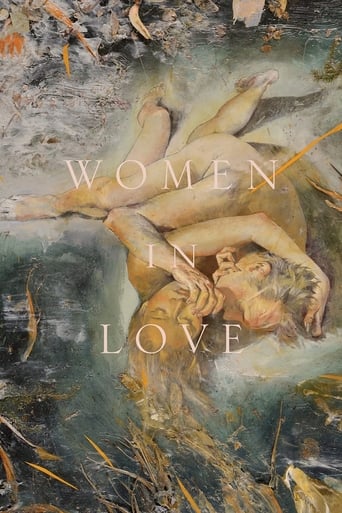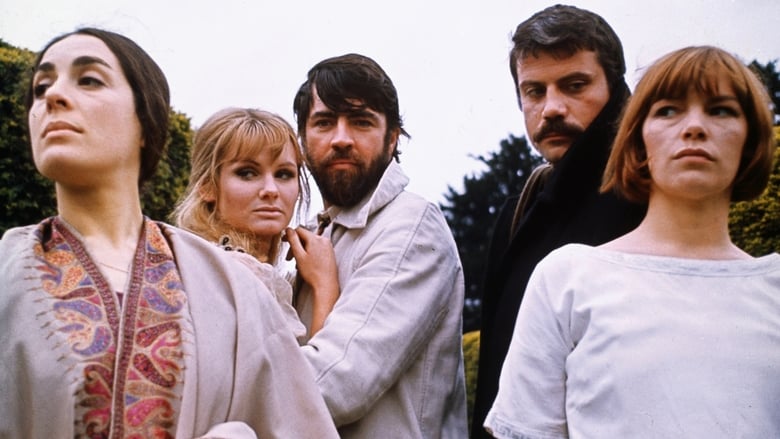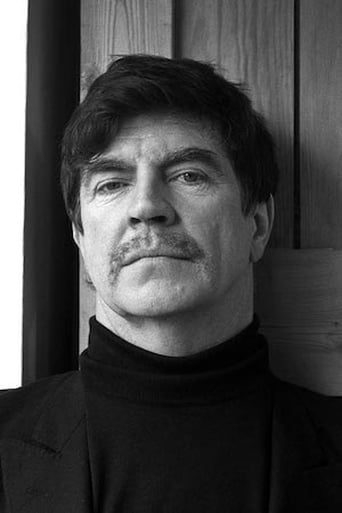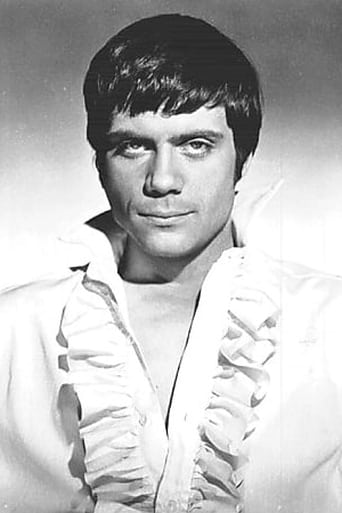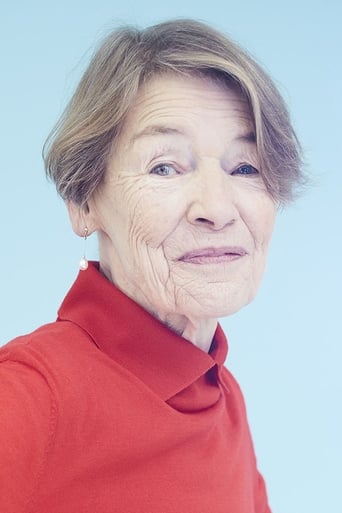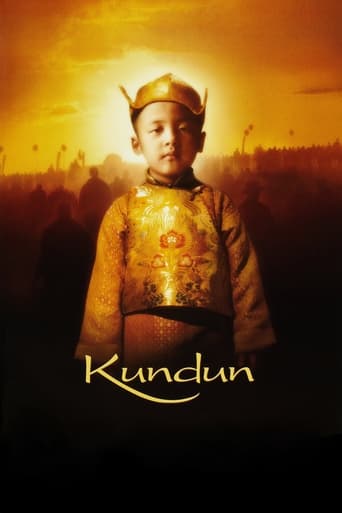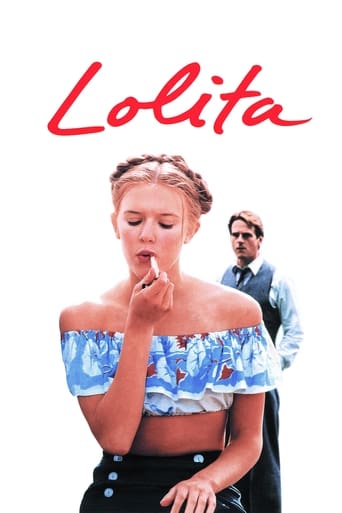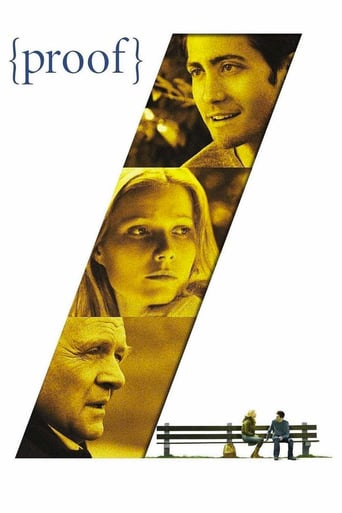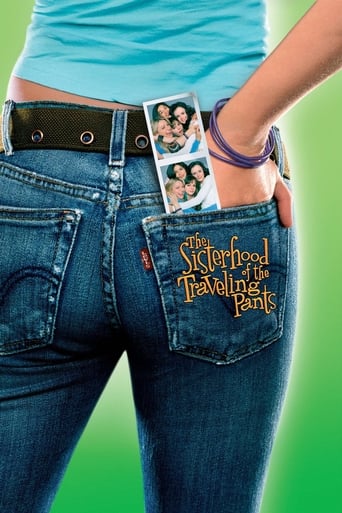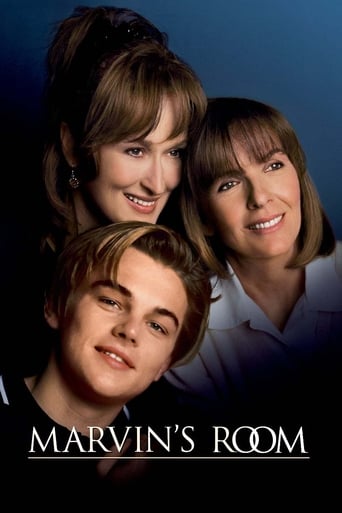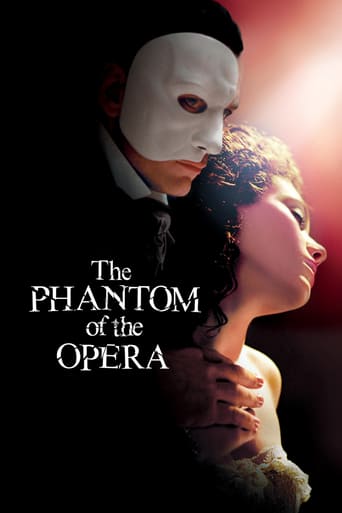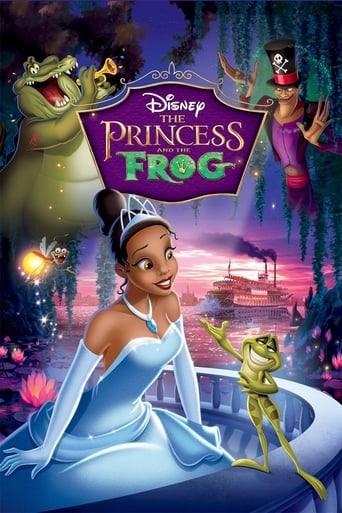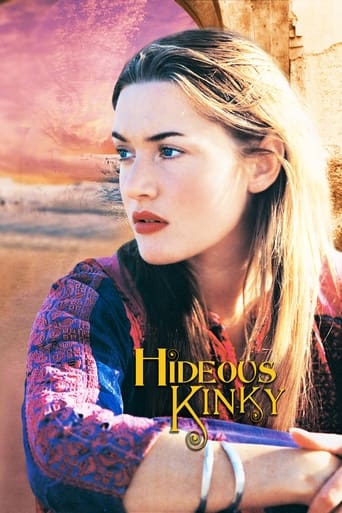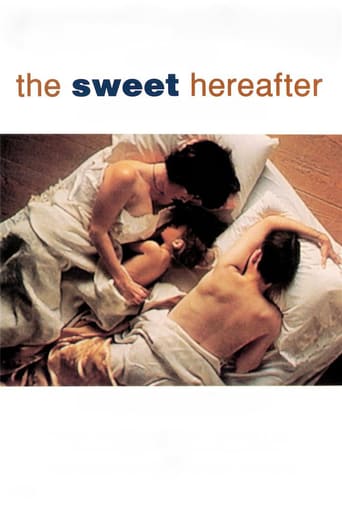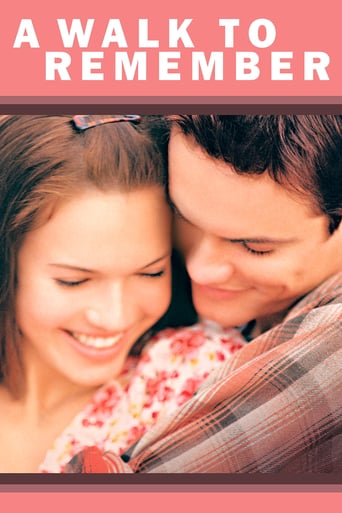Women in Love (1970)
Growing up in the sheltered confines of a 1920's English coal-mining community, free-spirited sisters Gudrun and Ursula explore erotic love with a wealthy playboy and a philosophical educator, with cataclysmic results for all four.
Watch Trailer
Free Trial Channels
Cast


Similar titles
Reviews
Truly Dreadful Film
Amateur movie with Big budget
A different way of telling a story
This movie feels like it was made purely to piss off people who want good shows
Ken Russell's overly precious screen version of the D H Lawrence novel "Women in Love" is all tactile sensuality and much naked abandonment, not to mention a hell of a lot of high flautin' dialogue courtesy of producer Larry Kramer. It was a huge hit when it came out, (the nudity may have helped sell it), and won the then unknown Glenda Jackson an Oscar as Best Actress. The problem I have with her, and indeed everyone else for that matter, is they aren't playing flesh and blood people but just aspects of Lawrence. There are several great set-pieces that might convince you that you are watching a real film and it's superbly photographed by Billy Williams but ultimately it's a very patchy piece of work that just doesn't live up to its reputation.
This film is adapted of course from D.H. Lawrence's novel, which continues on from 'The Rainbow' and has the Brangwen sisters, Ursula and Gudrun, contemplating men and marriage. They're played by Jennie Linden and Glenda Jackson, respectively, and the two soon find themselves in relationships with characters played by Alan Bates and Oliver Reed. I found Glenda Jackson to be the star here, though she's given lines that are sometimes overwrought (e.g. "How are your thighs? Are they strong? Because l want to drown in flesh. Hot, physical, naked flesh.") As with a lot of Lawrence's work, the story explores sexual freedom, monogamy, and life and death. It also explores homosexuality, and in one somewhat shocking (and extended) scene, Bates and Reed strip down to wrestle naked in front of a roaring fire, ending up glistening with sweat and on top of each other. It's liberating in its depiction of sexual honesty, but it's a bit bleak in its outlook about whether its characters will find happiness. The movie is certainly not shy about showing the naked body, both male and female, consistent with the movie having been made in the 'Age of Aquarius'. There is quite a bit of frolicking in nature and putting on performances of one sort or another, and the film is quite often gorgeous in its cinematography. Overall it lacks cohesion and is a little silly at times. Maybe that's how life is though.
Gudrun and Ursula are sisters in England in the early twentieth century. Ursula is in love with the free-thinking Rupert, whilst Gudrun is attracted to the wealthy Gerald. Will the two couples be happy together ?Ken Russell passed away recently. He was a great filmmaker and this, his second feature, illustrates his incredible visual talent. He breaks away from the dull traditional reverence when adapting literary classics, instead ramping up every scene as much as possible with pictorial flair, music, movement, sexual tension, shouting - anything to make the film as dramatic as possible. He succeeds with some fine moments. like the scene where Gudrun bewitches the Highland Cattle, or the infamous nude wrestling match between Bates and Reed, but there is a fundamental problem and that's the novel by D.H. Lawrence, the plot of which is in my view quite staggeringly dull. Rupert wants a bisexual lifestyle, Gudrun doesn't want to be tied down to anyone, Gerald wants a wife to dominate and Ursula just wants to be loved. They all pontificate endlessly about how they feel, which is about the least cinematic a story can get, so it's amazing that despite this Russell manages to make his film so arresting, filled with evocative shots of the beautiful countryside. Like The Unbearable Lightness Of Being and Eyes Wide Shut, this is a interesting movie about sexual morality based on very dull source material, but is well worth seeing for its visual flair alone. Nicely shot by Billy Williams in rural northern England and at Zermatt in Switzerland (that majestic mountain is the famous Matterhorn), and written and produced by noted playwright and gay rights activist Larry Kramer. Trivia - Jackson plays a scene where she pretends to be Antonina Miliukova (Tchaikovsky's wife), whom she played in Russell's subsequent The Music Lovers, and went on to appear as her character's mother in Russell's 1989 film The Rainbow.
Women In Love is one of the strangest movies I've seen in a while, and I've been watching lots of surrealist masterpieces lately. I guess in these movies the strangeness ends up making sense. Whereas in Ken Russell's movie we have stark realism constantly marred by misplaced corny scenes.For instance, and no doubt owing to the influence of the free love period this movie was made in, we have many scenes of outdoor nakedness, with people rolling around in the grass and making love. It seems Larry Kramer read the novel and only registered the dirty bits (of which there aren't many really). But this is based on a D. H. Lawrence novel, even if it's not the most explicit one; but it doesn't matter: people expect lots of sex from Lawrence and Russell and Kramer were only too happy to oblige.Left out were most of the philosophical aspects of the novel, but fortunately not its homosexual subtext, one of the most interesting things about the novel. Left are the bohemian aspects of the novel, left are the tense relationships between the Brangwen sister and father; left is the relationship between Gerald Crich and his dying father. The movie is a streamlined adaptation of a five-hundred-page, hardly-visual novel.No doubt the story sidetracked in favor of pretty pictures. At times one feels Russell is more interested in this as a period piece than as a narrative. With the help of Billy Williams, he shoots coal mines and streets in all their squalor, and nature and bodies in all their beauty. It's great to look at, not necessarily good to watch.The acting is top notch, and I'm shocked only Glenda Jackson got an Oscar for it. Alan Bates, Oliver Reed (his greatest performance ever?) and Jennie Linden are all amazing in their incoherent but heartfelt roles.All in all it's a movie worth watching.

